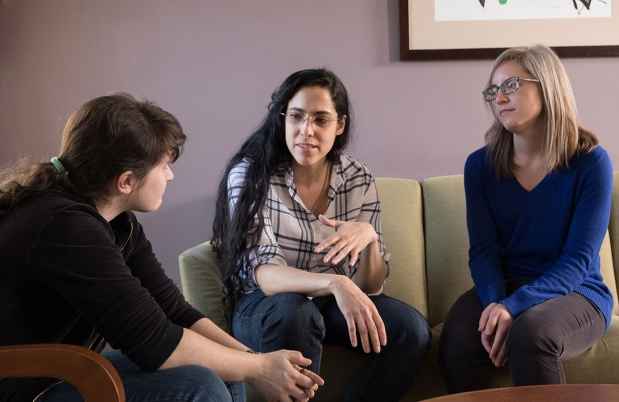On September 20, 2023, McLean Hospital hosted its inaugural Emerging Leaders in Mental Health workshop.
McLean’s Education Outreach team designed the event for psychiatrists, psychologists, social workers, clinical mental health counselors, nurse practitioners, and other professionals who work directly with patients. Over 500 people attended the free event, which was led by senior faculty from McLean Hospital and Harvard Medical School.
“So often, clinicians tell us they wish they were more skilled when they were just starting out in their careers,” director of Education Outreach Scott J. O’Brien said.
“In this workshop, our experts’ collective experiences apply to those who have just entered the mental health field, as well as to established clinicians.”
The course provided participants with professional insights from some of the top mental health practitioners in the field, with attendee-submitted questions helping to shape the course of the experts’ dialogue.
Building Trust
In the first discussion on developing trust with patients, Lisa W. Coyne, PhD, and Brent P. Forester, MD, MSc, shared their personal strategies for developing meaningful relationships with patients, especially those who may be hard to reach or less than enthusiastic about treatment. Each shared how a sense of authenticity is one of the most important qualities a provider can bring to the therapy room.
Forester stated that while a therapist’s ability to listen deeply to a patient’s story is critical, this skill may seem more challenging to access in today’s modern medical system, where providers are allotted less time with patients.
“But the amount of time doesn’t really matter—what matters is the quality of the time that you spend with the patient,” Forester said. “I think if you have an open ear to listen to what their agenda is, and to meet them where they’re at, that’s probably the biggest lesson that I’ve learned over the years.”
Watch the Course Now!
The Emerging Leaders in Mental Health Course is available on demand. Watch now—it’s FREE!
Continuing education credits are also available for a small fee.

The Importance of Diagnosis
The art of listening to a patient’s story and understanding the narrative behind a patient’s symptoms is also key to making an accurate diagnosis.
In their discussion on best practices, Roberto Olivardia, PhD, and Sophia L. Maurasse, MD, described the challenges of diagnostic accuracy.
Obstacles can occur when a patient’s emotional vocabulary is different from a clinician’s or when a patient is set on receiving a diagnosis they learned about on social media or online.
Maurasse stated she addresses such issues by making sure diagnosis is a collaborative process.
“When I enter that room, I think of it as entering a relationship with a patient where it will depend on some amount of collaboration between the two of us,” she said.
“I bring in the expertise around the treatment, and they’re bringing in their expertise around their own experience.”
Curiosity in the Clinic
In his talk, Cecil R. Webster Jr., MD, addressed the topic of cultural competence and curiosity in the clinic and provided guidance on how clinicians could better understand patients whose identities and life experiences may be vastly different from their own.
He reiterated that patients are the authorities on their own experiences. His presentation on cultural competence illustrated how intersectionality can help providers understand how overlapping identities influence their own lives and those of their patients.
Webster urged clinicians to explore their own identities and to determine which aspects of identity they are most familiar with. He asked the audience to consider how being less familiar with patients’ identities may prevent therapists from understanding these patients fully.
He stated that in efforts to know patients, it is important for providers to be less fearful in asking questions about topics such as race, gender, or class.
According to Webster, “Consider how you can lower your own anxiety and risk getting something wrong when you are asking about somebody’s essentially held identities.”
In the Emerging Leaders workshop, participants received wisdom—shared not through formal lectures but through conversation, as if the experts were their mentors. You can receive that wisdom, too, by watching now, on demand.
Media Requests
Journalist or member of the media? We are available 24/7 for media requests.



